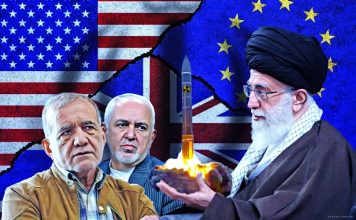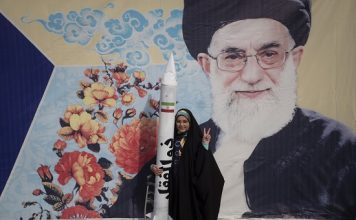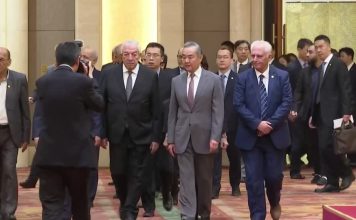By Kayhan Life Staff
Iranians are migrating to foreign countries in shockingly high numbers, leading experts to warn that the nation’s human capital is being eroded. Yet the government does not appear willing to address these concerns.
In a conversation with the Hammihan newspaper,the sociologist Saeed Moidfar attributed the wave of Iranian migration factors including “security problems, economic challenges, resentment towards the country of origin, and a sense of emptiness while living in one’s own country.”
Moidfar emphasized that migrants, particularly from Iran, Afghanistan, Nigeria, and other troubled nations, aren’t merely making a comparison between their country of origin and their destination; they are escaping adverse conditions. Tragically, a substantial number of migrants, predominantly from Iran, face perilous journeys, often culminating in fatalities in the Mediterranean.
Moidfar’s insights reveal a grim reality: people are not migrating, but rather fleeing. They, in fact, embark on perilous journeys without comparing their country of origin to their intended destination. The process is best described as an escape, not as migration. Many migrants also express a profound sense of being unrecognized in their homeland, lacking status, resources, and the acknowledgment of their interests.
Emigration statistics from Iran are nothing short of shocking, indicating a willingness among citizens of various educational backgrounds, jobs, and specialties to leave the country. Despite experts’ explicit warnings about the depletion of human capital and resources, government officials appear to downplay this crucial trend.
During a ceremony commemorating students’ day, President Ebrahim Raisi equated “patriotism” with being part of the “elite.” He questioned whether elites would give up serving the country for the sake of receiving slightly better pay abroad.
Many migrants, particularly those considered elites, are leaving Iran due to the pressures and obstacles imposed by the government. They seek refuge in foreign lands to enjoy a peaceful life, free from security pressures, and with opportunities for professional and personal progress.
Last week, Iran’s Minister of Science Mohammad Ali Zolfigol addressed the escalating rate of decentralization of academic credentials – referred to as “degree decentralization” — during a student question-and-answer session at Sharif University. While acknowledging opposition to the cost increases associated with “degree decentralization,” Zolfigol questioned why funds belonging to the country should be spent on students who are planning to go and serve abroad, raising questions about the allocation of resources and the government’s responsibility to retain skilled individuals within the country.
Abbas Ebadi, the Ministry of Science’s Deputy Minister of Nursing, rejected migration statistics released on social media regarding Iranian nurses, though he provided no alternative statistics.
President Raisi’s scientific assistant, Rohollah Dehghani Firouzabadi, recently downplayed emigration statistics, asserting that the phenomenon posed no immediate danger. The statement sharply contrasts with the growing numbers of individuals leaving the country.
Iranian Health Professionals Are Migrating In Droves, Former Lawmaker Says
Sardar Ali Fadavi, the deputy commander of the Islamic Revolutionary Guard Corps, linked the migration of Iranians to a “battle between right and wrong” and a sign of foreign interference. Claiming to have detailed knowledge of those leaving the country, Fadavi blamed a deliberate external effort to encourage migration.
“When the number of people leaving the country surpasses the usual rate,” he explained “it is a sign of framing emigration as a strategic move in a perceived battle.”
Tehran University sociologist Taghi Azad Aramaki challenges the prevailing narrative that economic reasons are the primary driver for elite emigration, criticizing the oversimplification of the issue. He blames “cronyism,” “nepotism” and pseudo-elites for displacing genuine elites in various fields. Meanwhile, members of the elite in other countries receive care and attention, and do not experience economic hardship. Aramaki’s observations shed light on the intricate power dynamics within Iran, where genuine talent faces challenges from influential groups with vested interests.
Aramaki also criticizes hiring practices in institutions, where personal connections often take precedence over university qualifications. The practice of cronyism, prevalent across ministries, raises questions about meritocracy and the fair distribution of opportunities.
Another critical issue highlighted is the pervasive pessimism towards elites in the country, where literacy is equated with Westernization, and critical thinking is deemed treacherous.
Iran Overhauls Educational System, Purges Academia in ‘Cultural Revolution’
Aramaki identifies a crucial reason for emigration as the growing gap between the government and the people. When a society loses social cohesion, it lacks the power, popularity, and efficiency, and deploys its military forces on the streets. This lack of cohesion becomes a fundamental driver of migration, emphasizing the importance of aligning the social system with the political system.













